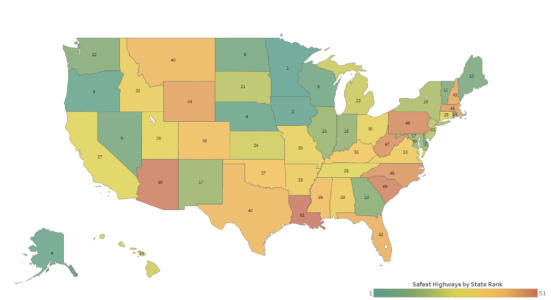8:00 - 17:00
Opening Hour: Mon - Fri
You may have to have a license to drive a vehicle, but you don’t have to have a license to own one. If you’re planning to buy a vehicle that you can’t legally drive yourself, it’s important to research your options when it comes to insuring it.
While it is possible to find insurance on your car, it may take some time to find a company with lenient enough underwriting guidelines.
Enter your ZIP code above for car insurance rates from multiple companies in your area!
Table of Contents
Most preferred carriers will only sell car insurance to vehicle owners who have a license. However, standard and substandard companies in the industry with quality products still exist in the industry.
If you’re not sure how to go about finding insurance on a vehicle that you’ve just bought before you get your license, here’s what you should know:

It’s up to you to decide if you want to study and test to earn your driving privilege but you can’t just pick and choose if you want to buy insurance.
If you own a car that’s registered in your state of residence, you must comply with the state insurance laws. Since auto insurance is mandatory in almost every state, the car needs to have at least state minimum auto coverage at all times.
You might not be operating the car, but you’re the one responsible for insuring it.
As long as it’s registered to you through the Department of Motor Vehicles, you’re the party who’s legally responsible for any damages that are caused while the car is being operated. This is why it’s the registered owner’s duty to comply with insurance laws.
Compare Quotes From Top Companies and Save

It’s very important that your registration and your auto insurance match or this could pose problems for you with the state. Since both the insurance and the registration need to be in the same name, there can be some setbacks while you’re shopping for insurance.
Every company has its own underwriting guidelines. Some of the companies have more flexible eligibility requirements than others.
It’s common for preferred car insurance carriers who sell insurance in the standard market to deny applicants who don’t have a license. Most preferred auto insurers will only insure named insureds who have an active license and an acceptable driving record.
In many states, you can word your registration to say your name or your spouse’s name.
If there’s an “or” between the names and your spouse is licensed, it’s possible to insure the car in your spouse’s name without putting yourself as a named insured.
This will ensure that you are in compliance with the state law and underwriting guidelines.
You don’t always have to be strategic with the wording on your car registration.
In many states, a car is community property when you’re married. Because of this, the car insurance contract states that you and your resident spouse are each considered a named insured.
If you aren’t married or your spouse doesn’t live in the same household as you, you need to find a car insurance carrier that will allow you to be listed as a named insured.
Once you find a carrier with lenient guidelines, you need to have a primary driver to list. The primary driver is the person who will affect the rates.
Without a primary driver on the policy, you can’t get insurance.
Auto insurers aren’t going to extend coverage to an owner who can’t drive the vehicle legally and doesn’t have any intentions of having someone drive it.
It’s also impossible for the carrier to underwrite risk when there’s no driver assigned to the vehicle.
Make sure you know who you’re listing under the policy before you apply for car insurance. If the primary driver that you select has several moving violations, traffic violations multiple accidents, or serious convictions, your application could still be denied.
If you aren’t turned away, your rates could be very high due to the high risk of accident or property damage. Teen drivers are also considered risky to insure.
Many auto insurers require primary drivers to live in the same household as you. If they live in a different household, you might need to put a different garaging address for rating the premiums.
It’s also better to list a driver with several years of experience if you want to keep your rates affordable. Inexperienced operators are classified as high risk.
It’s not common, but there may come a time where you need auto insurance coverage but you don’t have a drivers’ license or a car. This usually happens when your license has been suspended and you need to file an SR-22 form to get your license back.
Many times SR-22 filings are required after an uninsured accident, multiple no-insurance convictions, or DUI convictions. If you need SR-22 insurance, it will go on your driving records and can affect your driving history for a number of years. SR-22 insurance coverage requirements may also affect your car insurance rates.
Auto insurance carriers must issue and submit your proof of financial responsibility to the DMV. Since you’re not licensed, you can’t be added to a friend or family member’s auto insurance policy. You will need a non-owner’s car insurance policy to get your drivers’ license.
Not all companies issue these policies to people without a valid license, but many do.
If you can get a car without a drivers’ license, you should be able to find an auto insurer without a license too. Finding insurance might not be as easy though.
After you find companies with flexible rules, you can compare premiums to find the best deals. Use an online rate comparison tool and you will get the instant quotes that you need to make a quick decision.
Want to get a quote for the best insurance in your area? Enter your ZIP code below!
Auto Insurance FAQ